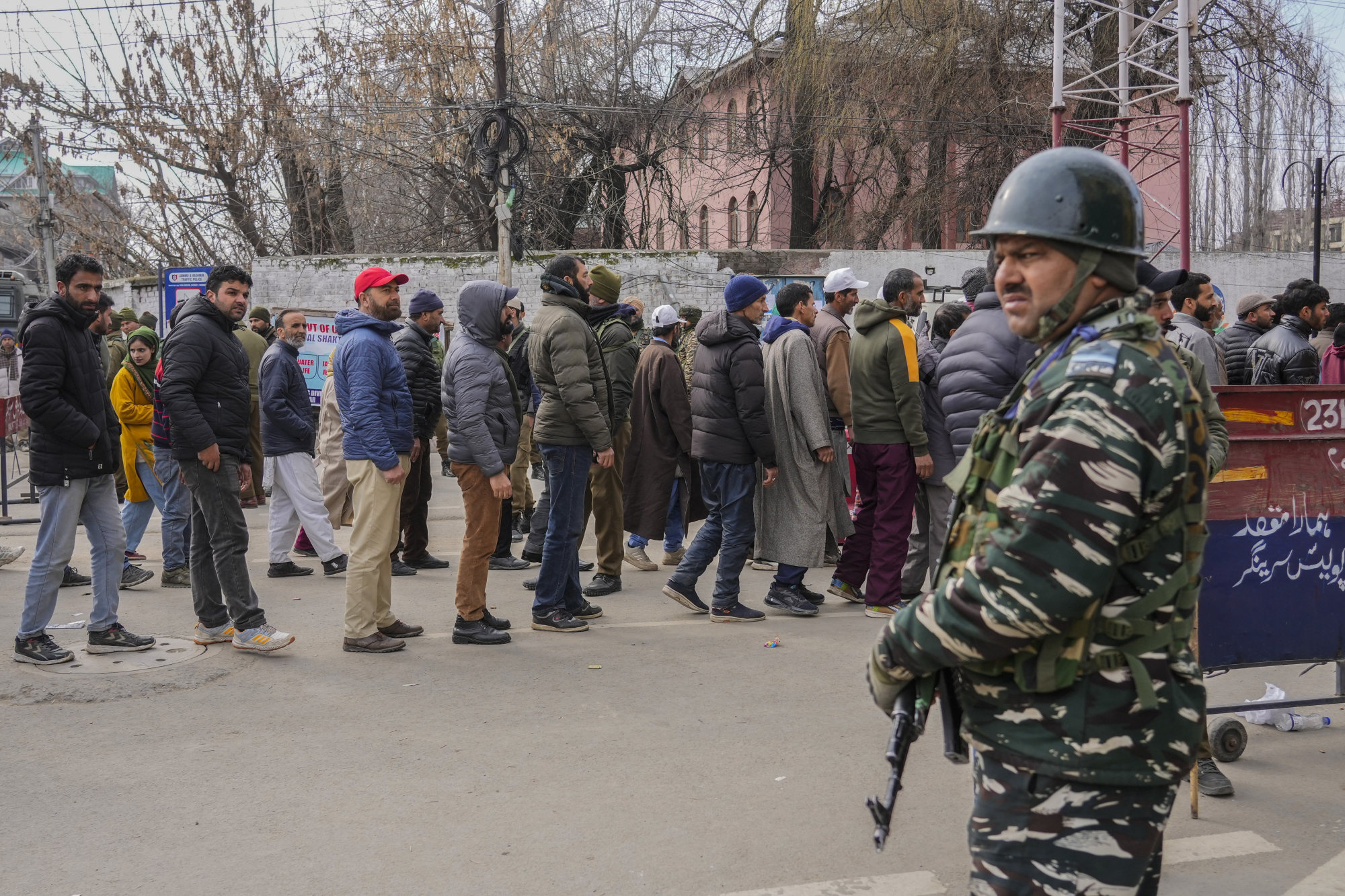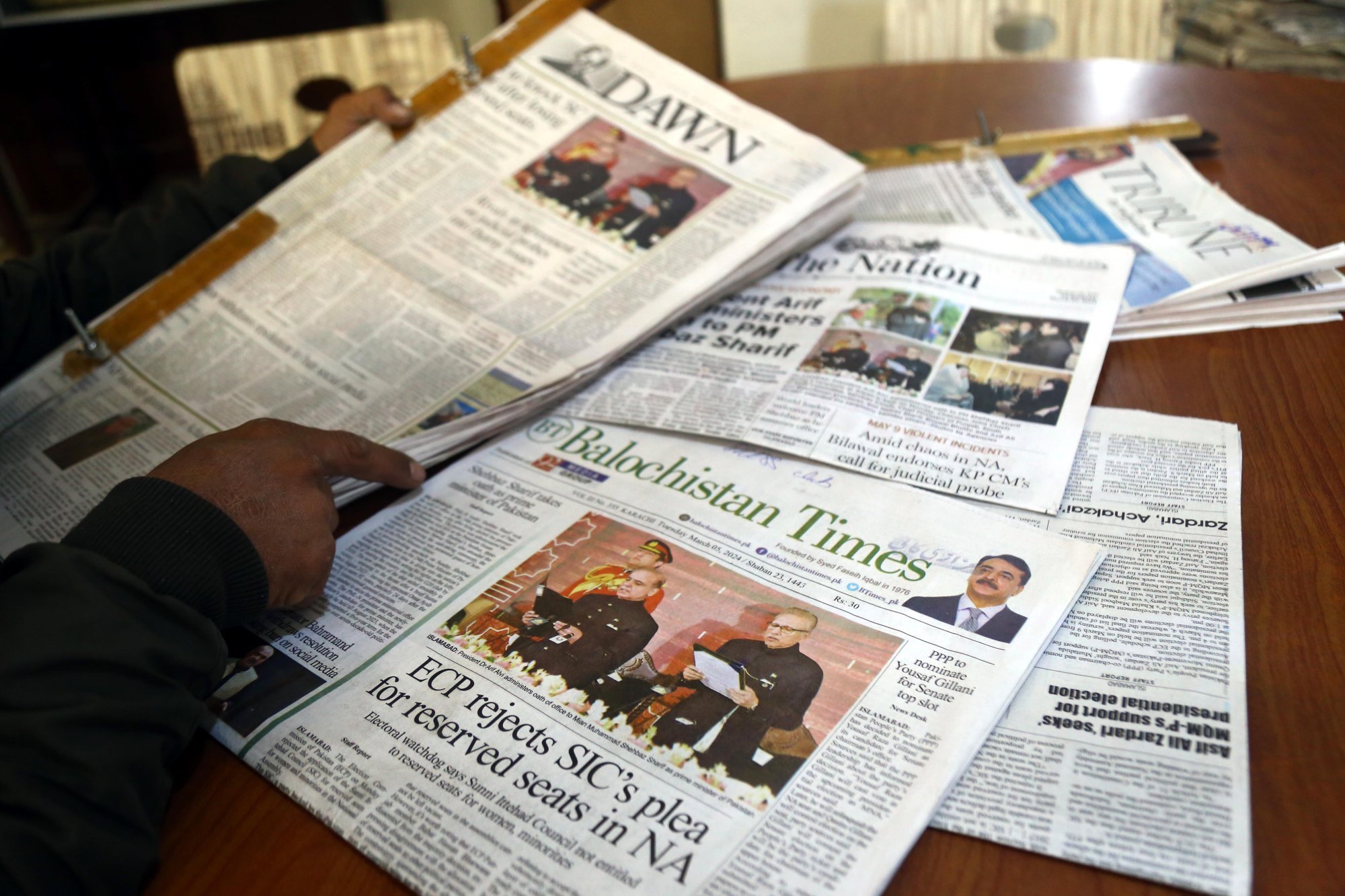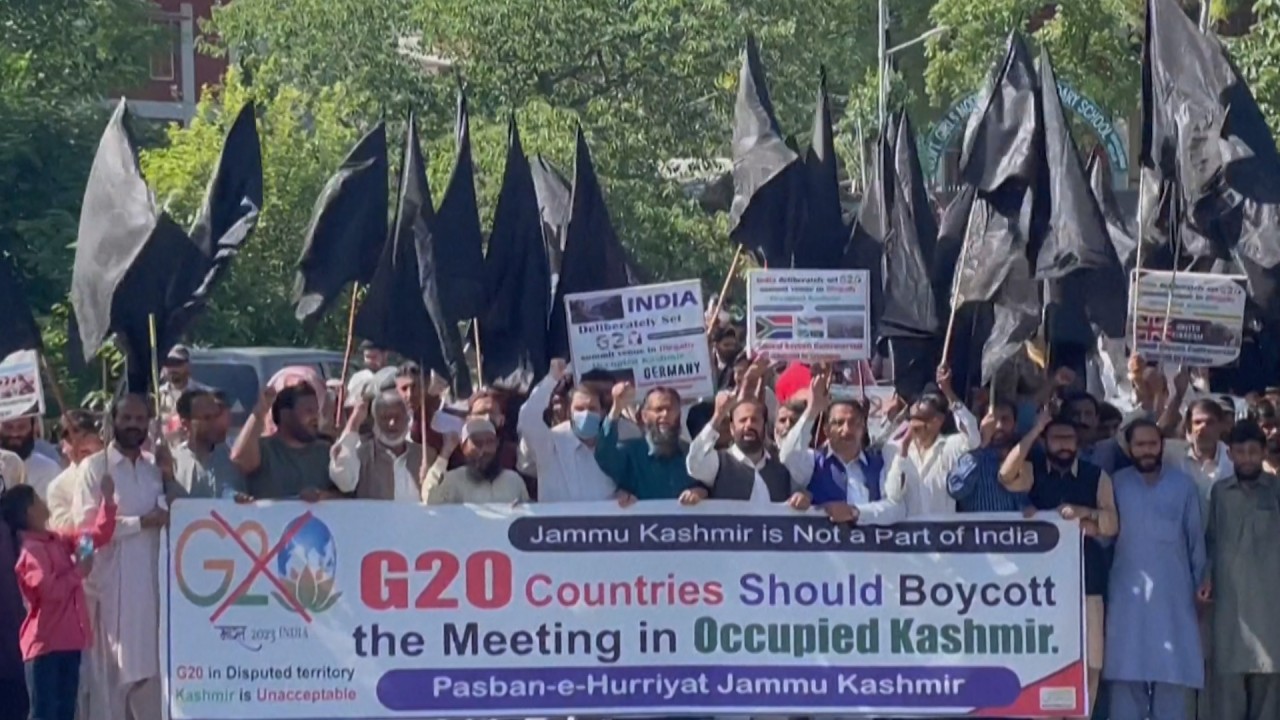Can Shehbaz Sharif help thaw Pakistan-India ties as Kashmir remains sticking point?
“In the next three months, India will be watching Pakistan carefully. Now the onus is on Shehbaz Sharif to get the army on board and make some new moves towards India,” he said.
Compared with ousted Pakistan prime minister Imran Khan, who often made inflammatory remarks against Indian Prime Minsiter Narendra Modi, the Sharif family is perceived to have a more favourable view of New Delhi.
Modi extended congratulations to Shehbaz on social media a day after he was sworn in, while his brother, three-time Pakistani leader Nawaz Sharif, attended the swearing-in ceremony of Modi during his first term in May 2014. In a reciprocal gesture, Modi made a surprise visit to Pakistan in December 2015 and attended the wedding of Sharif’s granddaughter in Lahore.
But Bisaria, who was the India’s high commissioner to Pakistan from 2017 to 2020, noted neither country was a priority for the other at present.
“India is busy with the general election, so they have no interest in the Pakistan relationship for the moment. Pakistan has other problems, including Imran Khan, Afghanistan and US-China ties,” he said. “So both the countries are in no hurry to initiate any relationship.”

Bisaria said one move Pakistan could make was to give India strong assurances on terrorism, as “low-grade terrorism” in the form of drones was emerging, particularly in the Punjab and Kashmir region.
“I think India’s basic expectations would be reduction in terrorism and Pakistan giving India some kind of assurances on that,” he said.
Bisaria said Pakistan had made “unrealistic demands” for Delhi to reverse its decision.
Modi was due on Thursday to make his first official visit to Indian Kashmir’s Srinagar city, since Delhi took direct control of it in 2019.
Abdul Basit, who served as Pakistan’s high commissioner to India from 2014 to 2017, said Islamabad might engage with Delhi through backchannels to address the Kashmir issue. “Diplomacy is about creating possibilities,” he said.
Basit warned reverting to structured dialogue at this stage would further weaken Pakistan’s Kashmir policy. “Clarity about policy bottom lines is necessary before we engage with India.”
Michael Kugelman, director of the Wilson Center’s South Asia Institute, said he did not expect any improvement in relations between the two countries anytime soon.
“Modi’s message was quite terse, and not terribly warm. I would read it as an indication that Modi acknowledges the new government and would like to keep things stable. And that’s it,” he said. “The message certainly was not an olive branch.”
“Shehbaz may not be a hawk on India, but he’s also not one to take a conciliatory position. He takes a harder line on India than does his brother, and so any pitches he makes for better ties with India will be conditioned on New Delhi changing its policies on Kashmir-and that’s not about to happen,” he added.
But Kugelman suggested that trade could be a domain where progress was possible.
“For economic reasons, Shehbaz may push for reopening some border trade. But India is unlikely to oblige. This means one of the few potential confidence-building measures for India-Pakistan relations is unlikely to materialise,” he said.

Senior Pakistani journalist Hamid Mir said it would be difficult for Shehbaz to make any progress in improving ties with India without a national consensus in Pakistan.
While candidates backed by ousted leader Imran Khan’s Pakistan Tehreek-e-Insaf (PTI) gained the most seats in the February 8 election, Sharif’s Pakistan Muslim League-Nawaz and the Pakistan Peoples Party (PPP) agreed to form a coalition, which enabled Shehbaz to be elected as prime minister after his brother Nawaz stepped aside.
Mir said Shehbaz’s government was “heavily dependent on the support of the PPP”, which has over the years used the Kashmir issue to garner support. “Secondly, [Khan’s] PTI is a very popular opposition party, and they will not allow Shehbaz Sharif to make a new start with India,” he added.
Mir said that according to sources in the establishment, India was ready to move forward on the “Musharraf formula”, but it was not something any party in Pakistan was ready to accept.
The formula refers to a proposed “four-point solution” for the Kashmir dispute employed by ex-leader Pervez Musharraf, including demilitarisation, the free movement of people across The Line of Control, self-governance without independence, as well as a joint supervision mechanism in Jammu and Kashmir involving India, Pakistan and Kashmir.
Mir noted Pakistan’s army chief, General Asim Munir, was a strong supporter of United Nations resolutions on Kashmir, and he would not continue with the approach of his predecessor General Qamar Bajwa, who “depended too much on back channel with India”.
Pakistan’s powerful military has orchestrated several coups and directly governed the country for more than three decades, and it has historically played a significant role in shaping domestic and foreign policies.
“Most importantly, China is very close to Pakistan, and Pakistani leaders cannot go out of the way for India, because there is no benefit for Pakistan in taking any risk,” Mir said.
Opinion: What Pakistan’s political changes mean for China, the US and India
Ajay Gudavarthy, associate professor at Jawaharlal Nehru University’s Centre for Political Studies, told This Week in Asia the recent diplomatic overtures were “merely optics”.
Gudavarthy said until there was a military-political nexus in Pakistan, he believed there was little chance for an improved relationship between Islamabad and Delhi.
“It is of nobody’s political interest to have a peaceful and meaningful relationship. India has a majoritarian government, and Pakistan is governed by its military industry,” he said.
“Moreover, increasing foreign policy issues are becoming more contentious in domestic politics. So, I don’t think there is any possibility whatsoever for both countries to have an improved relationship.”
To address an internal crisis, both countries needed an external enemy, Gudavarthy said.
“The complexity of democratic mobilisation has gone beyond the capacity of these states. What you call the ‘overload of the state’ in political science. There is a legitimacy crisis of the state on either side of the border. Therefore, in such a context, an external enemy is imperative to keep the people engaged,” he explained.
Gudavarthy stressed that politics and culture had very little chance of improving relations between India and Pakistan. He believed trade and development were key to bridging the gap.
“The collapse of Pakistan’s economy has discounted even that [trade and development] possibility of being a mediating point between the two countries.”
